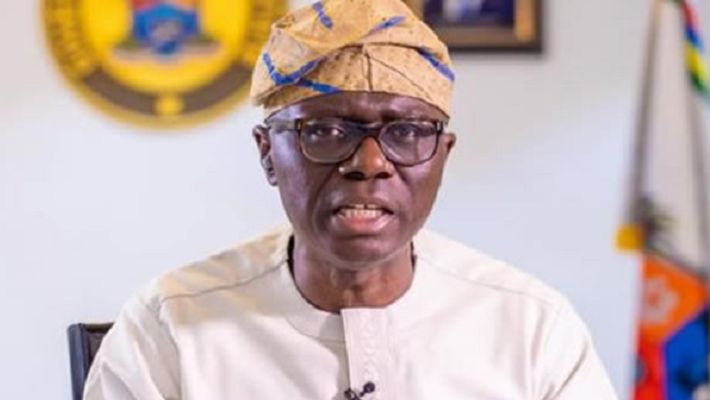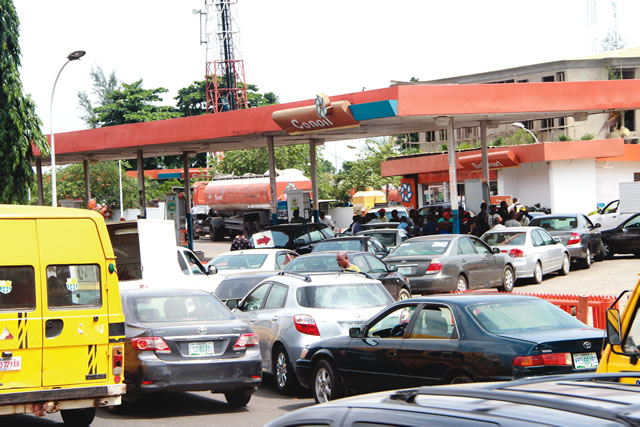Sanwo-Olu’s refusal to appoint Igbos to Lagos cabinet reverses diversity strides in Nigeria’s commercial capital

Riding on the ethnic politics that enveloped Lagos in the run-up to the 2023 election, Governor Babajide Sanwo-Olu has decided to run a second term that excludes residents of Igbo extraction.
Despite constituting the second-largest ethnic group in the state, Mr Sanwo-Olu named his cabinet in September without nominating a single Igbo politician or technocrat, thereby setting back the wee progress the state had recorded towards diversity and inclusion under previous administrations.
Mr Sanwo-Olu, on September 13, swore in 23 commissioners after their confirmation by the State House of Assembly. The governor also named 14 special advisers to his cabinet, none of whom was Igbo.
This was the first time a Lagos governor would have a cabinet with no Igbo man included since at least the administration of Bola Tinubu (1999-2007). During his first time, from May 2019 to May 2023, Mr Sanwo-Olu had Joe Igbokwe, originally from Nnewi in Anambra, as a special adviser on water supply and drainage services.
Peoples Gazette heard from people close to the governor that he was asked to exclude with Labour Party and its candidate Gbadebo Rhodes-Vivour enduring hate-filled campaign from supporters of Mr Sanwo-Olu and the ruling All Progressives Congress, is said to have played a part in the governor not wanting to give Igbo further sense of belonging in the state, according to people close to the governor.
But while Lagos is on the ancestral land of the Yoruba, who are still believed to constitute majority of the state’s nearly 20 million people, previous administrations recognised that the growing presence of Igbo, whose ancestors settled in Nigeria’s south-east, should not be downplayed in the interest of equitable development. Nigerian population department and other federal statistics offices don’t collect data on citizens by ethnicity, making it virtually impossible to determine the ethnic composition of Lagos. But generally, due to how ethnic groups are dominant in different clusters of the city, Yoruba people are still believed to be to remain the largest ethnic group in the commercial capital, while residents of Igbo origin are the second-largest.
Prominent Igbo citizens like Ben Akabueze, who reformed Lagos fiscal policies when he served as economic planning and budget commissioner from 2007 to 2015, have discharged their duties in the state’s cabinet as if they were running their home states in the south-east, said one of Mr Sanwo-Olu’s aides under anonymity to avoid being cited for unauthorised interaction with reporters.
“But the governor was told by state lawmakers that they won’t vote to confirm any Igbo person,” the aide said. “They clearly said what happened during the last election was too serious and should not be encouraged.”
The official was referring to the political pressure in the lead-up to the governorship election in March, when ethnic commotion flared between supporters of Messrs Sanwo-Olu and Rhodes-Vivour. APC loyalists tried to cast Mr Rhodes-Vivour as an outsider because his mother was Igbo and he married an Igbo woman. But he pushed back, saying he would never be a sell-out as governor and urged voters to reject the fear-mongering from the ruling party.
Two weeks earlier, on February 25, Peter Obi, running as the presidential candidate of Labour, had defeated Bola Tinubu in Lagos, even though Mr Tinubu was seen as the godfather of Lagos politics. This added to the ethnic sentiments, with some Yoruba leaders in APC facilitating the violent disenfranchisement of Igbos at the ballot box when the governorship election was held on March 11.
The targeting of voters on the basis of ethnicity was widely condemned, including by the United States.
Still, opposition politicians, including some Yoruba, said the pre-election confrontations were not worth sacrificing Lagos’ diversity progress and potential.
“The issue of not including Igbos shows how temperamental and prejudiced he is because when you talk about the ethnic diversity of Lagos, next to the indigenes of Lagos, I’ll say the Igbo community comes next,” said Tokunbo Pearse, a Lagos indigene of Yoruba extraction. “So, if you’re talking about representation, it’s not because you like them or you don’t like them, but they represent a major force, they have a very strong business community as well as just pure numbers.”
The Gazette asked two spokesmen for the governor to defend his exclusion of Igbo from his latest cabinet, but they promised twice but failed to return comments.
Alex Ogbonnia, spokesperson for Ohanaeze Ndigbo Worldwide, also weighed in on the matter, telling The Gazette that the governor should not run a government of nepotism in a state like Lagos but should rather embrace all ethnic groups to further improve his government.
Mr Ogbonnia said it is “in the interest of the leadership of this country at all levels to shun nepotism and ethnicism. Those who tried to embrace every ethnic group have done very well.”
“It is to the advantage of the governor of Lagos State to embrace all the ethnic groups that will help his government to do well. He should give them direction and momentum for the progress and development of the state. Those who had come before him realised the potential and advantages,” he added
Prior to the election, Mr Sanwo-Olu worked extensively to court Igbo votes, holding several meetings with leaders of the ethnic group. But the APC failed to garner as much votes from Igbo as it did in previous election. Analysts attributed this to the growing awareness of Lagosians about Mr Tinubu’s influence over the state.
Despite leaving as governor in 2007, Mr Tinubu, who is now president, has continued to loot Lagos treasury because he has entrenched himself as the state’s so-called godfather. He single-handedly imposed the three successors he has had so far, Tunde Fashola, Akinwunmi Ambode and now Mr Sanwo-Olu.
“Lagosians know that every vote they cast for any politician nominated by Bola Tinubu is a vote for Bola Tinubu to continue stealing the common resources of the people of the state,” said public affairs commentator Funke Olowu. “So the pressure that APC felt in Lagos during the last election was not just because many voters, predominantly Igbo I would admit, were tired of APC but also because of Bola Tinubu’s corrupt influence over the state.”
Ms Olowu said the APC received the message that it was not indispensable in Lagos, despite its vast political structure as installed by Mr Tinubu.
Philip Aivoji, chairman of the main opposition Peoples Democratic Party, said Mr Sanwo-Olu’s action mirrored the hubris with which his party has ruled the state.
“If they can undermine the electorate’s wish, what can they not undermine? They undermine fairness, justice, everything,” he said.
He was echoed by Emeka Umeagbalasi of the International Society for Human Rights and Rule of Law (Inter-Society), who said it was among the grave manifestations of “what happened in the 2023 election, when Nigerians left their collective direction, patrimony and interests as multi-cultural and multi-ethnic groupings to indulge in politics of ethnicity.”
“Look at the people who contribute to the economy and development of Lagos State, you’ll find out that it’s a cosmopolitan state. That means the Hausas, Igbos and, of course, the Yorubas are supposed to have their interests captured in the cabinet of Lagos State to really define the true composition of the state,” Mr Umeagbalasi added.
In recent years, debates over who ‘owns’ Lagos have dominated engagements on social media, with most participants focusing on who should govern the state. Nigeria’s 30 states are governed by people indigenous to them, but an increasingly number of citizens recently noticed Lagos’ appeal to be designated a special status by the central government as an indication that it cannot be administered like a typical state.
The city-state’s previous status as the federal capital of Nigeria also strengthened arguments in some corners that it was developed before and after colonial administration with resources pooled from all over the country.
“We don’t want to go down memory lane to be able to tell the whole world the historical composition of Lagos State and how Lagos State was founded. What is important is that the government of Lagos State, as presently constituted, must have to go back to the drawing board and replace the cabinet to have the bearing of its cosmopolitan nature,” Mr Umeagbalasi added.
An official close to the governor said he understood the benefits of a diverse body of policymakers, but the crisis that unfolded during the election remained a fresh memory for the political leaders in the state.
“The governor was initially ashamed to constitute a cabinet without a single Igbo man or woman,” the official said. “But he still has enough time over the coming three-and-a-half-year left of his tenure.”
“It is just a matter of shuffling the cabinet or creating a new ministry or agency to be quickly filled by an Igbo resident,” he added.
But Mr Pearse, the Lagos politician, said he would not count on the governor to do the right thing, saying opposition politicians and voters should just work harder to prevent another divisive APC governor from succeeding Mr Sanwo-Olu in 2027.
“Igbos are doing a lot in Lagos State. If you want to be inclusive, before you include any other ethnic group, you must include the Igbos. If you don’t do that, it shows prejudice and petty mindedness,” he said. “I just hope Lagosians are taking note of what is going on, that the next election they don’t vote for him.”
We have recently deactivated our website's comment provider in favour of other channels of distribution and commentary. We encourage you to join the conversation on our stories via our Facebook, Twitter and other social media pages.
More from Peoples Gazette

Politics
Katsina youths pledge to deliver over 2 million votes to Atiku
“Katsina State is Atiku’s political base because it is his second home.”

Abuja
Fuel scarcity hampering businesses in Nigeria: ACCI
The leader of the Organised Private Sector in Abuja called on NNPCL to expedite the distribution of petroleum products across the country.

States
Ibadan: Four arraigned for stealing IBEDC transformer cable
The defendants are charged with conspiracy and stealing, but they pleaded not guilty.

States
Police arrest activist for alleged defamation of Governor Alia’s aide on Facebook
Mr Mojekwu is charged with criminal conspiracy, cyberstalking and defamation of character.

Economy
Businesses grounded in Maiduguri fish market as traders stage protest
The protesters’ spokesman, Abdullahi Bako, said they were demanding to hold a congress to determine the association’s future and conduct a fresh election.

Agriculture
Bayelsa: Gov Diri slams oil companies’ ‘recklessness’, seeks UN support to tackle environmental degradation
The Bayelsa government has urged the United Nations to support efforts towards tackling environmental degradation in the Niger Delta region.
![Anambra governor, Charles Soludo [Credit: Twitter/Soludo]](https://gazettengr.com/wp-content/uploads/IMG-20230325-WA0006.jpg)
States
75-year-old barber raped our little girl, gave her mango to keep quiet: Father
“The suspect took her to his room to give her mango and also told her not to answer when we were calling out her name,” said the girl’s father.








